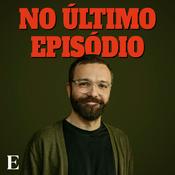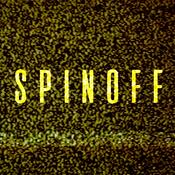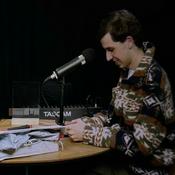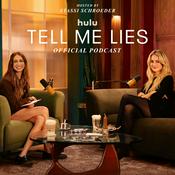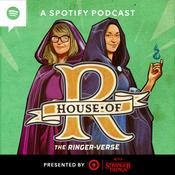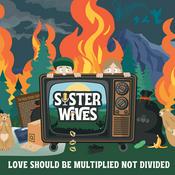54 episódios

I'm Still Here (Brazil) (2024) (Guest: Isabela Amaral) (episode 52)
16/12/2025 | 55min
I’m Still Here (dir. Walter Salles, 2024) is based on the true story of the enforced disappearance and murder of former congressman Rubens Paiva by the military dictatorship in Brazil. The film opens in Rio de Janeiro in 1970, where Rubens lives with his wife, Eunice, and their five children. Their lives are forever altered when the military government arrests and disappears Rubens. The film describes Eunice’s attempt to find out what happened to Rubens and to rebuild her life and raise her family in his absence. The film is based on the memoir of their son, Marcelo Rubens Paiva, who was a young boy when Rubens was disappeared. I’m Still Here provides a harrowing account of Brazil's military dictatorship and a moving story of a woman’s struggle to overcome adversity and obtain justice.Timestamps:0:00 Introduction2:16 The military dictatorship in Brazil4:38 Living amid contradictions6:52 The kidnapping of the Swiss ambassador8:33 Rubens’ arrest and disappearance12:38 Authoritarian legality14:18 The arrest and mistreatment of family members17:16 Covering up state crimes19:29 Exile as another tool of repression23:08 Enforced disappearances27:18 Leveraging international pressure29:08 Eunice Paiva’s struggle and success33:15 Support for the military dictatorship36:01 Finally obtaining Rubens’ death certificate 25 years later40:10 Brazil’s National Truth Commission48:39 Authoritarian threats to democracy todayFurther reading:Atencio, Rebecca J., Memory’s Turn: Reckoning with Dictatorship in Brazil (2014)Filho, Paulo Coehlo, “Truth Commission in Brazil: Individualizing Amnesty, Revealing the Truth,” The Yale Review of International Studies (Feb. 29, 2012)Lima, Ana Gabriela Oliveira, “Corrected death certificates for Herzog, Rubens Paiva,and one hundred others are celebrated in a ceremony,” Folha de S. Paulo (Oct. 8, 2025)Paiva, Marcelo Rubens, I’m Still Here (2025)Pitts, Bryan, Until the Storm Passes: Politicians, Democracy, and the Demise of Brazil’s Military Dictatorship (2023)Weinberg, Eyal, “Transitional Justice in Brazil, 1970s–2010s,” Oxford Research Encyclopedia (2022) Law on Film is created and produced by Jonathan Hafetz. Jonathan is a professor at Seton Hall Law School. He has written many books and articles about the law. He has litigated important cases to protect civil liberties and human rights while working at the ACLU and other organizations. Jonathan is a huge film buff and has been watching, studying, and talking about movies for as long as he can remember. For more information about Jonathan, here's a link to his bio: https://law.shu.edu/profiles/hafetzjo.htmlYou can contact him at [email protected] can follow him on X (Twitter) @jonathanhafetz You can follow the podcast on X (Twitter) @LawOnFilmYou can follow the podcast on Instagram @lawonfilmpodcast

An Officer and a Spy (2019) (Guest: William Schabas) (episode 51)
25/11/2025 | 49min
This episode explores An Officer and a Spy (J’accuse in French), Roman Polanski’s 2019 film about the Dreyfus Affair in France. The Dreyfus Affair is one of most significant events in late 19th/early 20th century, an event whose implications reverberated for decades in France and around the world. The Dreyfus Affair centered around the military trial of Captain Alfred Dreyfus on charges of treason. Wrongly convicted based on secret evidence and false information, Dreyfus’s case would become a cause célèbres and synonymous with a miscarriage of justice. It also exposed and exacerbated tensions within French society while underscoring deep and pervasive levels of antisemitism. Based on Robert Harris's 2013 novel of the same name, An Officer and a Spy focuses on the role of George Picquart, the military officer who helps uncover the truth behind Dreyfus’s wrongful conviction, and Picquart’s complex relationship with Dreyfus himself. Hewing closely to historical fact, the film highlights critical issues around law, truth, and justice, at the heart of the Dreyfus affair and why it remains so relevant today. Timestamps:0:00 Introduction 3:02 An overview of the Dreyfus case and key players 5:54. Georges Picquart 13:14. The struggle to overturn Dreyfus’s conviction 17:54 Tensions over the Dreyfus affair and a lack of accountability 20:48 The “evidence” in the Dreyfus case 25:38 How the Dreyfus affair divided French society 30:16 Other films about the Dreyfus affair 33:54 The controversy around Roman Polanski as director 39:21 Legacies of the Dreyfus affair 45:13 The role of Colonel Henry Further reading: Begley, Louis, Why the Dreyfus Affair Matters (2009) Bredin, Jean‑Denis, The Affair: The Case of Alfred Dreyfus (1986) Doherty, Thomas, “From Méliès to Polanski: The Dreyfus Affair on Film,” Cineaste (2020) Harris, Robert, An Officer and a Spy (2013) Read, Piers Paul, The Dreyfus Affair: The Scandal That Tore France in Two (2013) Samuels, Maurice, Alfred Dreyfus: The Man at the Center of the Affair (2024) Zola, Émile, The Dreyfus Affair: J’Accuse and Other Writings (1998) Law on Film is created and produced by Jonathan Hafetz. Jonathan is a professor at Seton Hall Law School. He has written many books and articles about the law. He has litigated important cases to protect civil liberties and human rights while working at the ACLU and other organizations. Jonathan is a huge film buff and has been watching, studying, and talking about movies for as long as he can remember. For more information about Jonathan, here's a link to his bio: https://law.shu.edu/profiles/hafetzjo.htmlYou can contact him at [email protected] can follow him on X (Twitter) @jonathanhafetz You can follow the podcast on X (Twitter) @LawOnFilmYou can follow the podcast on Instagram @lawonfilmpodcast

Juror #2 (2024) (Guest: Frank Wohl) (episode 50)
04/11/2025 | 47min
This episode examines Juror #2, Clint Eastwood’s most recent—and perhaps final—film. Juror #2 centers around the trial of a man accused of murdering his girlfriend after a fight at a bar, leaving her in a ditch by the side of a road. The twist comes early: Justin Kemp a/k/a Juror #2 (played by Nicholas Hoult) soon realizes that the wrong man is on trial—as he hears the evidence, Kemp figures out that he, and not the defendant, killed the victim. Kemp realizes that he accidentally hit the defendant’s girlfriend with his car while she was walking along the side of a road on a dark and rainy night—thinking at the time, that he had hit a deer. Kemp, otherwise portrayed as a good man—a loving husband with a baby on the way—must navigate the moral dilemma as he serves on a jury that seems prepared to condemn an innocent man. Eastwood’s first courtroom drama in a long and legendary career, Juror #2 explores themes of justice, morality, and the imperfections of the legal system. Timestamps:0:00 Introduction2:46 A flawed process7:05 The ex-police detective on the jury and the motion for a mistrial15:40 The lawyer’s problematic advice23:16 A prosecutor who eventually does the right thing27:17 The public defender31:28 A good person caught in terrible circumstances?40:40 Missing scenes in the legal narrative44:46 A dark picture of the U.S. criminal justice systemFurther reading:“A Forensic Review of ‘Juror #2,’” J. American Academy of Psychiatry and the Law, vol. 53(1) (2025) Banner, Adam, “Honesty in jury pool examined in ‘Juror #2,’” ABA Bar Journal (Jan. 28, 2025)Brody, Richard, “In ‘Juror #2,’ Clint Eastwood Judges the System Harshly,” New Yorker (Oct 30, 2024)Melonic, Emina, “The Storytelling of Clint Eastwood,” Law & Liberty (Jan. 10, 2025)Upendra, Chidella, “The Ethical Vision of Clint Eastwood,” Journal of Religion & Film, vol. 17(2) (Oct. 2013)Zagha, Muriel, “Clint Eastwood’s Puritan Morality Tale,” Engelsberg Ideas (Dec. 2, 2024) Law on Film is created and produced by Jonathan Hafetz. Jonathan is a professor at Seton Hall Law School. He has written many books and articles about the law. He has litigated important cases to protect civil liberties and human rights while working at the ACLU and other organizations. Jonathan is a huge film buff and has been watching, studying, and talking about movies for as long as he can remember. For more information about Jonathan, here's a link to his bio: https://law.shu.edu/profiles/hafetzjo.htmlYou can contact him at [email protected] can follow him on X (Twitter) @jonathanhafetz You can follow the podcast on X (Twitter) @LawOnFilmYou can follow the podcast on Instagram @lawonfilmpodcast

Vindication Swim (2024) (Guest: Elliot Hasler) (episode 49)
13/10/2025 | 31min
Vindication Swim (2024) tells the story of Mercedes Gleitze, the first British woman to swim the English Channel in 1927. This major accomplishment, however, was soon called into question when another swimmer made a dubious claim to the same feat. To defend her integrity and her legacy, Gleitze (Kirsten Callaghan) attempted what she called her “vindication swim” — a second crossing of the English Channel intended to silence her critics and restore her reputation. Vindication Swim is about more than an athletic feat. It also raises timeless questions of proof, reputation, and justice, while providing a window into the barriers imposed by gender and class in early 20th-century England. Timestamps:0:00 Introduction2:14 Who was Mercedes Gleitz?5:14 Training to play Mercedes Gleitz6:14 Gleitz’s 1927 English Channel swim is called into question8:58 A key event for women in open water swimming11:22 The intersection of gender, class, and nationality16:02 An impetus for regulating open water swimming17:46 The vindication swim20:49 The challenges in filming the swim24:35: Raising awareness about a historical injustice29:08 Restoring Mercedes Gleitz to prominenceFurther Reading:“Mercedes Gleitze and the Vindication Swim,” LoneSwimmer (Oct. 18, 2013)Pember, Doloranda, In the Wake of Mercedes Gleitze: Open Water Swimming Pioneer (2019)Thorpe, Vanessa, “‘No stunt doubles for me,’ says actor who braved Channel to recreate epic swim,” The Guardian (Mar. 2, 2024) Law on Film is created and produced by Jonathan Hafetz. Jonathan is a professor at Seton Hall Law School. He has written many books and articles about the law. He has litigated important cases to protect civil liberties and human rights while working at the ACLU and other organizations. Jonathan is a huge film buff and has been watching, studying, and talking about movies for as long as he can remember. For more information about Jonathan, here's a link to his bio: https://law.shu.edu/profiles/hafetzjo.htmlYou can contact him at [email protected] can follow him on X (Twitter) @jonathanhafetz You can follow the podcast on X (Twitter) @LawOnFilmYou can follow the podcast on Instagram @lawonfilmpodcast

The Godfather (1972) (Guest: Steve Koh) (episode 48)
16/9/2025 | 1h 8min
Francis Ford Coppola’s The Godfather (1972) is widely regarded as one of the greatest films of all time. Based on Mario Puzo’s best-selling 1969 novel, The Godfather depicts the rise and legacy of the Corleone family, a fictional Italian-American organized crime family led by Vito Corleone and the transformation of his son Michael from a reluctant outsider to a ruthless mafia boss. The film, which features an ensemble cast of American film icons, including Marlon Brando, Al Pacino, James Caan, Robert Duval, Diane Keaton, Talia Shire, and John Cazale, explores themes of family, power, and the American Dream. It also provides a window into the relationship between law and culture while offering complex perspectives on the meaning of justice. Timestamps: 0:00 Introduction 3:08 “I believe in America” 12:27 Business and the personal 14:07 Competing views of law and justice in America 16:57 The legitimate and illegitimate, the sacred and the profane20:52 Narratives about the mafia 26:59 The consigliere 33:59 Tensions between tradition and modernity 39:37 Ritual44:41 Performance and power 49:11 Retribution 55:18 The mafia and The Godfather 56:48 Codes of loyalty 102:39 The immigrant experience Further reading: Barber, Nicholas, “The Godfather: Have we misunderstood America's greatest film?”, BBC (Mar. 13, 2022) Coppola, Francis Ford, The Godfather Notebook (2016) Denvir, John, “The Slotting Function: How Movies Influence Political Decision,” 28 Vermont L. Rev. 799 (2003-04) Gambrell, Brian C., “Leave the Representation, Take the Cannoli: The Crime Fraud Exception to the Attorney-Client Privilege and ‘The Godfather,’” 23 South Carolina Lawyer (2011-12) Papke, David, “Myth and Meaning: Francis Ford Coppola and Popular Response to The Godfather Trilogy,” in Legal Reelism: Movies as Legal Text (John Denvir ed., 1996) Puzo, Mario, The Godfather (1969) Seal, Mark, Leave the Gun, Take the Cannoli: The Epic Story of the Making of The Godfather (2021) Law on Film is created and produced by Jonathan Hafetz. Jonathan is a professor at Seton Hall Law School. He has written many books and articles about the law. He has litigated important cases to protect civil liberties and human rights while working at the ACLU and other organizations. Jonathan is a huge film buff and has been watching, studying, and talking about movies for as long as he can remember. For more information about Jonathan, here's a link to his bio: https://law.shu.edu/profiles/hafetzjo.htmlYou can contact him at [email protected] can follow him on X (Twitter) @jonathanhafetz You can follow the podcast on X (Twitter) @LawOnFilmYou can follow the podcast on Instagram @lawonfilmpodcast
Mais podcasts de TV e cinema
Podcasts em tendência em TV e cinema
Sobre Law on Film
Ouve Law on Film, No Último Episódio e muitos outros podcasts de todo o mundo com a aplicação radio.pt
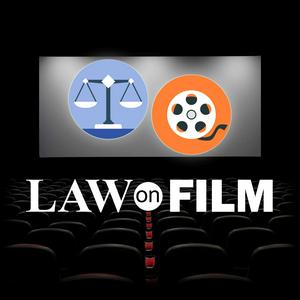
Obtenha a aplicação gratuita radio.pt
- Guardar rádios e podcasts favoritos
- Transmissão via Wi-Fi ou Bluetooth
- Carplay & Android Audo compatìvel
- E ainda mais funções
Obtenha a aplicação gratuita radio.pt
- Guardar rádios e podcasts favoritos
- Transmissão via Wi-Fi ou Bluetooth
- Carplay & Android Audo compatìvel
- E ainda mais funções


Law on Film
descarregue a aplicação,
ouça.
